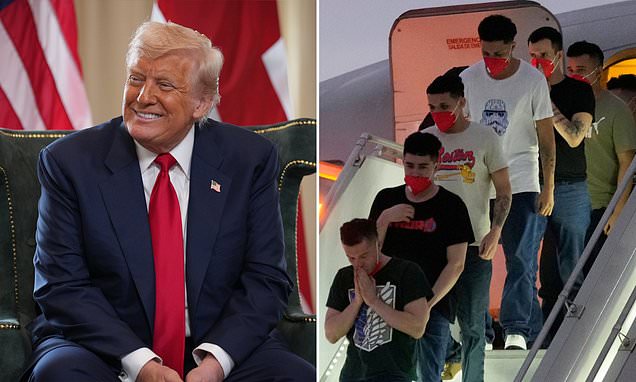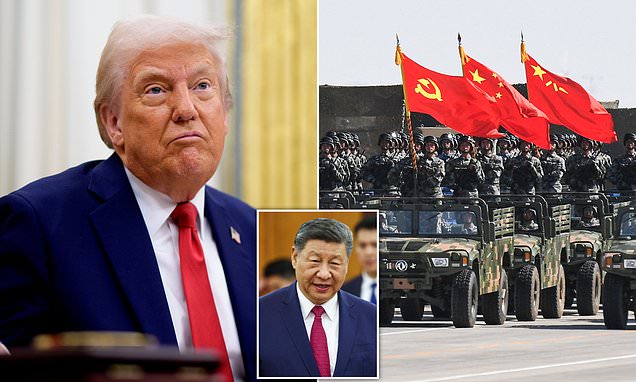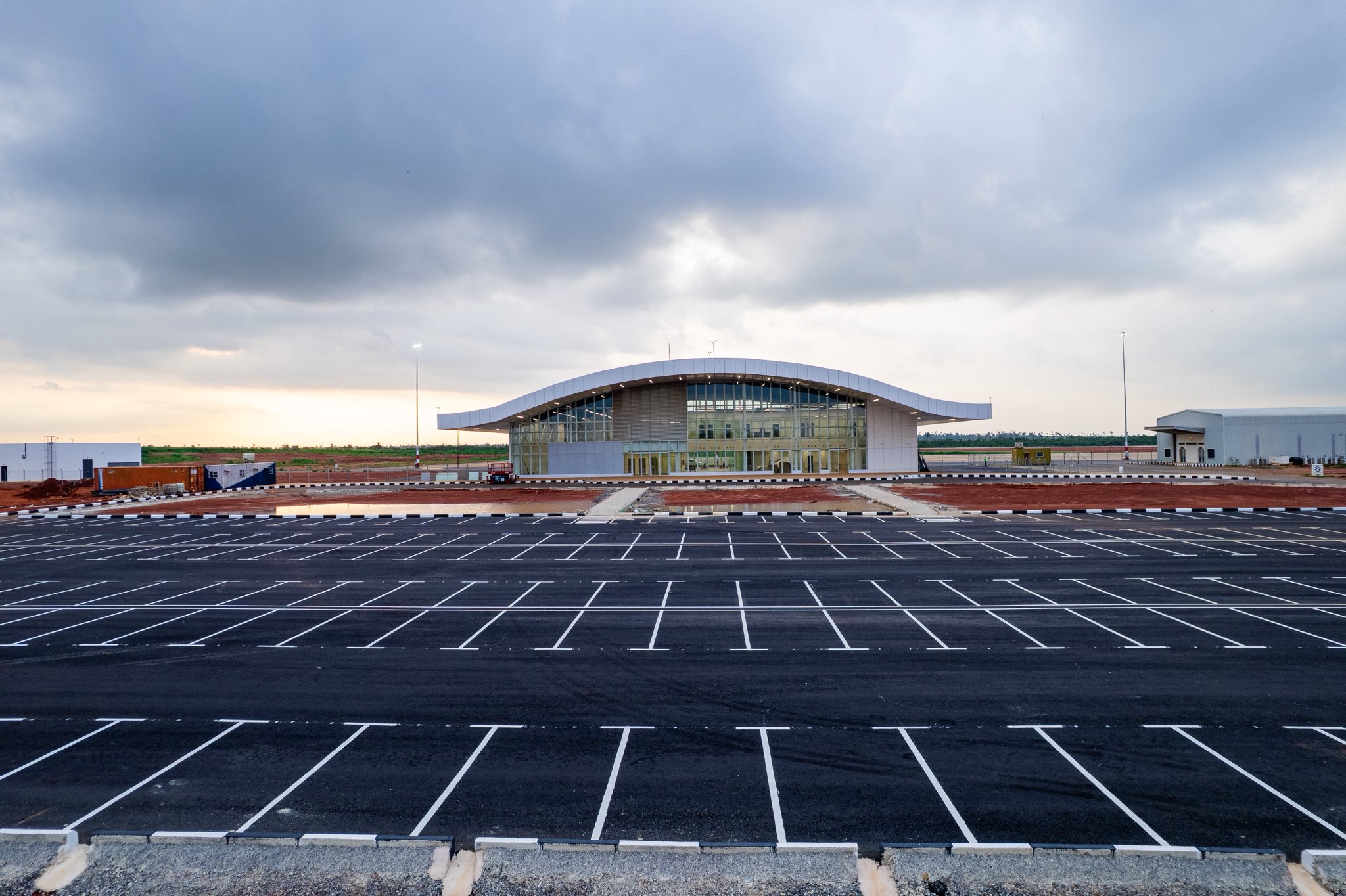In a significant policy reversal, President Donald Trump has taken decisive steps to revoke the temporary immigration protections granted to more than 250,000 Venezuelans by the administration of his predecessor, President Joe Biden. This move, announced in early September 2025, signals a return to stringent immigration enforcement measures, aligning with Trump’s long-standing campaign promises to curb illegal immigration and prioritize border security. The decision has sparked intense debate, with critics arguing it could exacerbate humanitarian crises, while supporters view it as a necessary measure to restore order to the U.S. immigration system. This article explores the context, implications, and broader ramifications of this policy shift, delving into the historical background of Venezuelan migration, the legal mechanisms involved, and the potential consequences for both the United States and the affected Venezuelan population.
Background: The Venezuelan Migration Crisis
To fully understand the significance of this policy change, it is essential to examine the root causes of Venezuelan migration to the United States. Venezuela, once one of Latin America’s wealthiest nations due to its vast oil reserves, has experienced a dramatic economic and political collapse over the past two decades. The crisis began in earnest under the presidency of Hugo Chávez (1999–2013) and worsened under his successor, Nicolás Maduro. A combination of mismanagement, corruption, and over-reliance on oil revenues led to hyperinflation, widespread poverty, and shortages of basic goods like food and medicine. By 2018, Venezuela’s economy had contracted by more than 60%, and inflation reached staggering levels, peaking at over 1,000,000% according to the International Monetary Fund (IMF).
The political situation in Venezuela further compounded the crisis. Maduro’s government, widely criticized as authoritarian, suppressed dissent, manipulated elections, and cracked down on opposition leaders. The 2018 presidential election, which saw Maduro re-elected, was deemed illegitimate by many international observers, prompting sanctions from the United States, European Union, and other nations. These sanctions, aimed at pressuring the Maduro regime, inadvertently exacerbated economic hardship for ordinary Venezuelans, contributing to one of the largest refugee crises in modern history.
As a result, over 7.7 million Venezuelans have fled the country since 2014, according to the United Nations High Commissioner for Refugees (UNHCR). The majority have sought refuge in neighboring Latin American countries such as Colombia, Peru, and Brazil. However, a significant number have made their way to the United States, particularly through the U.S.-Mexico border. Many of these migrants have cited violence, political persecution, and economic desperation as reasons for leaving Venezuela.
Temporary Protected Status (TPS) and the Biden Administration’s Policies
The Temporary Protected Status (TPS) program, established under the Immigration Act of 1990, allows the U.S. government to grant temporary legal status to nationals of countries experiencing conditions that make it unsafe for them to return, such as armed conflict, environmental disasters, or other extraordinary circumstances. TPS recipients are shielded from deportation and granted work authorization in the United States, though the status does not provide a pathway to permanent residency or citizenship.
In 2021, the Biden administration designated Venezuela for TPS, citing the country’s ongoing humanitarian crisis, political instability, and economic collapse. This designation allowed approximately 250,000 Venezuelans already in the United States to apply for protection, enabling them to live and work legally without fear of deportation. The decision was widely praised by immigrant advocacy groups and humanitarian organizations, who argued that returning Venezuelans to their home country would expose them to life-threatening conditions.
The Biden administration’s TPS designation for Venezuela was part of a broader effort to adopt a more humane approach to immigration, in contrast to the Trump administration’s restrictive policies from 2017 to 2021. During his first term, President Trump sought to terminate TPS for several countries, including Haiti, El Salvador, and Honduras, arguing that the program was being abused and that conditions in those countries had improved sufficiently to allow for repatriation. However, these efforts were met with legal challenges and were largely blocked by federal courts.
In addition to TPS, the Biden administration implemented other measures to address the influx of Venezuelan migrants, including humanitarian parole programs and increased coordination with Latin American countries to manage migration flows. These policies were driven by both humanitarian concerns and the recognition that mass deportation of Venezuelans would be logistically challenging and politically contentious.
Trump’s Policy Reversal: A Return to Hardline Immigration Stance
Upon assuming office in January 2025 for his second term, President Trump wasted no time in signaling a return to the immigration policies that defined his first administration. Central to his agenda has been the promise to strengthen border security, reduce illegal immigration, and expedite deportations. The decision to revoke TPS for Venezuelans is a cornerstone of this approach, reflecting Trump’s belief that temporary protections have been misused and have encouraged further migration.
The announcement, made in early September 2025, involves the termination of Venezuela’s TPS designation, effectively stripping more than 250,000 Venezuelans of their legal protections. Under this policy, those affected will face deportation proceedings unless they qualify for other forms of immigration relief, such as asylum. The move is part of a broader strategy to overhaul the U.S. immigration system, which Trump and his supporters argue has been overwhelmed by a surge in border crossings in recent years.
The decision to target Venezuelan TPS recipients is particularly significant given the scale of the Venezuelan migration crisis and the visibility of Venezuelan communities in the United States. Many TPS holders have established lives in the U.S., finding employment, starting businesses, and integrating into communities. The prospect of deporting such a large number of people has raised logistical, ethical, and diplomatic questions.
Legal and Administrative Mechanisms
The process of terminating TPS is complex and involves several legal and administrative steps. Under U.S. law, the Secretary of Homeland Security has the authority to designate or terminate TPS for a country based on an assessment of conditions in that country. To revoke TPS for Venezuela, the Trump administration must demonstrate that conditions have improved sufficiently to allow for the safe return of nationals. This could include arguments that Venezuela’s economic situation has stabilized or that political persecution is no longer a significant threat.
However, such a determination is likely to face legal challenges. Critics argue that Venezuela remains in a state of crisis, with ongoing shortages, violence, and political repression under the Maduro regime. Human rights organizations, such as Amnesty International and Human Rights Watch, have documented continued abuses, including arbitrary detentions and extrajudicial killings, which could be used to argue against the termination of TPS.
Once TPS is revoked, affected individuals typically have a grace period—often 6 to 18 months—to prepare for departure or seek alternative legal status. This period is intended to allow for an orderly transition, but it also places significant pressure on TPS holders to navigate a complex immigration system. Many may apply for asylum, though the approval rate for Venezuelan asylum cases is relatively low due to the high evidentiary burden required to prove individual persecution.
Implications for Venezuelan TPS Holders
The revocation of TPS is likely to have profound consequences for the more than 250,000 Venezuelans affected. Many of these individuals have built lives in the United States over the past several years, finding employment in industries such as construction, hospitality, and healthcare. Deportation would disrupt their livelihoods, separate families, and force them to return to a country still grappling with severe economic and political challenges.
For example, consider the case of a hypothetical Venezuelan TPS holder, Maria, a 35-year-old mother of two who arrived in the U.S. in 2019. Maria fled Venezuela after her husband, a journalist, was detained by the Maduro regime for criticizing the government. In the U.S., Maria obtained TPS, found work as a caregiver, and enrolled her children in school. The revocation of TPS would place Maria at risk of deportation, potentially forcing her to return to a country where her family still faces threats. Stories like Maria’s are common among TPS holders, highlighting the human cost of the policy change.
In addition to personal hardships, mass deportation could strain U.S. communities and industries that rely on TPS holders as workers and contributors. Venezuelan immigrants have been praised for their strong work ethic and entrepreneurial spirit, with many starting small businesses or filling labor shortages in key sectors. Their removal could lead to economic disruptions in certain regions, particularly in states like Florida, Texas, and California, which have large Venezuelan populations.
Broader Political and Diplomatic Ramifications
The decision to deport Venezuelan TPS holders also has significant political and diplomatic implications. Domestically, the move is likely to deepen partisan divides over immigration policy. Democrats and immigrant advocacy groups have condemned the decision, arguing that it is cruel and shortsighted. They point to the humanitarian crisis in Venezuela and the contributions of TPS holders to American society as reasons to maintain protections. In contrast, Republican supporters of the policy argue that it is necessary to deter further illegal immigration and prioritize American citizens.
The policy could also affect U.S. relations with Latin American countries, particularly those hosting large numbers of Venezuelan refugees. Nations like Colombia and Brazil have struggled to accommodate millions of Venezuelan migrants, and the prospect of additional deportations from the U.S. could exacerbate regional tensions. Furthermore, the Maduro regime is unlikely to cooperate with large-scale deportations, given its strained relationship with the United States. This could complicate efforts to repatriate Venezuelans, potentially leading to prolonged detention for those awaiting deportation.
Public Reaction and Advocacy Efforts
The announcement has sparked a wave of protests and advocacy efforts from immigrant rights groups, faith-based organizations, and community leaders. In cities with large Venezuelan populations, such as Miami and Houston, rallies have been held to demand the reinstatement of TPS and protections for vulnerable migrants. Social media platforms, including X, have seen an outpouring of support for Venezuelan TPS holders, with hashtags like #SaveTPS and #VenezuelanRefugees trending in early September 2025.
Advocacy groups are also preparing legal challenges to block the termination of TPS. Organizations such as the American Civil Liberties Union (ACLU) and the National Immigration Law Center have signaled their intent to file lawsuits, arguing that the Trump administration’s decision is arbitrary and fails to account for ongoing dangers in Venezuela. These legal battles could delay or even halt the implementation of the policy, as seen during Trump’s first term when similar efforts to terminate TPS were blocked by courts.
Economic and Social Considerations
From an economic perspective, the deportation of over 250,000 Venezuelans could have ripple effects across the U.S. economy. TPS holders contribute billions of dollars annually through taxes, consumer spending, and labor. A 2019 study by the Center for American Progress estimated that TPS holders from Venezuela, Haiti, and other countries collectively contribute $79.2 billion to the U.S. GDP over a decade. Their removal could lead to labor shortages, reduced tax revenue, and economic disruptions in communities where they are concentrated.
Socially, the policy raises questions about the integration of immigrants and the role of humanitarian protections in U.S. policy. TPS holders are often deeply embedded in their communities, with many having U.S.-citizen children or spouses. Deportation would not only affect the individuals targeted but also their families, schools, and neighborhoods. The emotional and psychological toll of such a policy cannot be understated, as families face the prospect of separation and uncertainty.
Historical Context: Trump’s Immigration Legacy
This policy shift is consistent with President Trump’s approach to immigration during his first term. From 2017 to 2021, his administration implemented a series of measures aimed at reducing both legal and illegal immigration, including the construction of a border wall, the “zero tolerance” policy that led to family separations, and restrictions on asylum eligibility. The termination of TPS for Venezuelans aligns with this broader agenda, reflecting Trump’s view that immigration policies should prioritize national security and economic interests.
However, the focus on Venezuelans also highlights a unique geopolitical dimension. During his first term, Trump was a vocal critic of the Maduro regime, recognizing opposition leader Juan Guaidó as Venezuela’s legitimate president in 2019. The decision to deport Venezuelans may seem at odds with this stance, as it could be perceived as abandoning those fleeing Maduro’s oppression. Critics argue that this contradiction underscores the complexity of balancing humanitarian concerns with immigration enforcement.
Potential Alternatives and Solutions
As the debate over TPS continues, some policymakers and advocates have proposed alternatives to mass deportation. One option is to extend TPS for Venezuelans while Congress works on comprehensive immigration reform that could provide a pathway to permanent residency for TPS holders. Such a solution would require bipartisan cooperation, a challenging prospect in the current political climate.
Another approach is to strengthen international efforts to address the Venezuelan crisis at its source. This could involve increased humanitarian aid to Venezuela and neighboring countries, as well as diplomatic pressure to promote democratic reforms. While such measures would not immediately resolve the situation for TPS holders, they could reduce the need for mass migration in the long term.
Conclusion
President Trump’s decision to revoke TPS for over 250,000 Venezuelans marks a pivotal moment in U.S. immigration policy. The move reflects a return to the hardline stance that characterized his first term, prioritizing enforcement over humanitarian considerations. However, it also raises profound questions about the United States’ role as a refuge for those fleeing persecution and hardship.
For the Venezuelans affected, the policy shift threatens to upend lives built over years of struggle and resilience. For the United States, it poses challenges to economic stability, community cohesion, and international relations. As legal battles and public protests unfold, the fate of these 250,000 individuals hangs in the balance, underscoring the enduring complexity of immigration policy in a polarized world.
The coming months will likely see intense debate and legal maneuvering as advocates, policymakers, and the courts grapple with the consequences of this decision. Whatever the outcome, the story of Venezuelan TPS holders serves as a powerful reminder of the human stakes at the heart of immigration policy, and the need for solutions that balance compassion with pragmatism.






